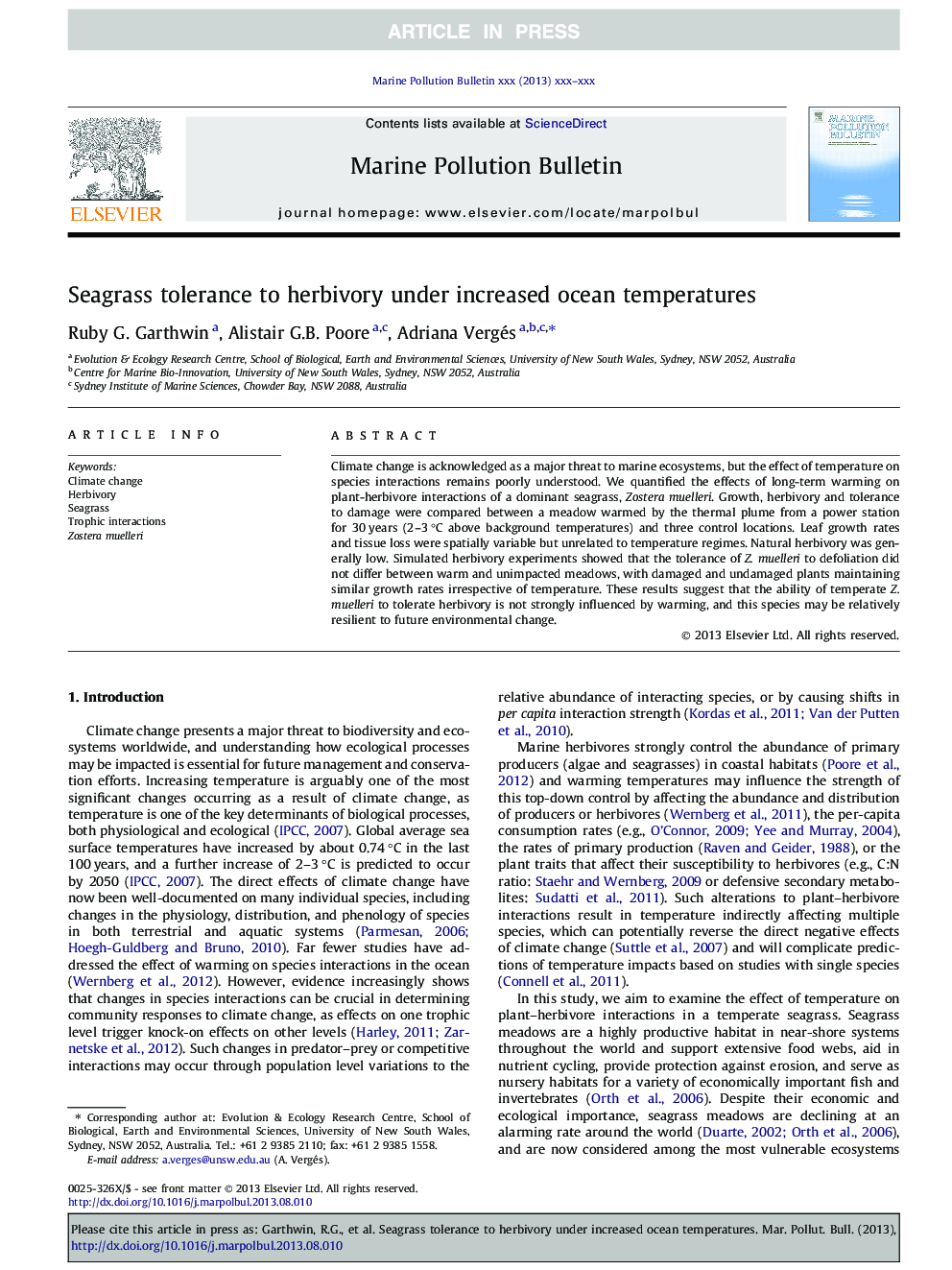| Article ID | Journal | Published Year | Pages | File Type |
|---|---|---|---|---|
| 6358134 | Marine Pollution Bulletin | 2014 | 8 Pages |
Abstract
Climate change is acknowledged as a major threat to marine ecosystems, but the effect of temperature on species interactions remains poorly understood. We quantified the effects of long-term warming on plant-herbivore interactions of a dominant seagrass, Zostera muelleri. Growth, herbivory and tolerance to damage were compared between a meadow warmed by the thermal plume from a power station for 30 years (2-3 °C above background temperatures) and three control locations. Leaf growth rates and tissue loss were spatially variable but unrelated to temperature regimes. Natural herbivory was generally low. Simulated herbivory experiments showed that the tolerance of Z. muelleri to defoliation did not differ between warm and unimpacted meadows, with damaged and undamaged plants maintaining similar growth rates irrespective of temperature. These results suggest that the ability of temperate Z. muelleri to tolerate herbivory is not strongly influenced by warming, and this species may be relatively resilient to future environmental change.
Related Topics
Physical Sciences and Engineering
Earth and Planetary Sciences
Oceanography
Authors
Ruby G. Garthwin, Alistair G.B. Poore, Adriana Vergés,
